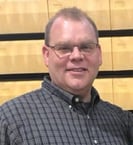Recently, I was having a conversation with my daughter about what she wants to be when she’s “grown up.” For some reason, something so obvious struck a chord within me that I want to share my realization if nothing more than to serve as a reminder to my readers.
Developing Your Skills
I spend a lot of time trying to develop skills within my students that will make them successful regardless of the vocations into which the Lord will call them. I focus on master of language and logical, critical thinking. Oftentimes, my students will display aptitudes toward certain skills. Celebrating those skills, I will even suggest possible future careers. Are you good at theology? Let me tell you about the seminary. Are you a whiz at the Federal Rules of Evidence? Have you thought about a career in law?
Essentially, what I’ve done is fallen, at least partially, into the trap of equating who a student should be with what she does well. On the surface, that sentence may seem a little strange. After all, it makes sense for our young charges to seek out professional vocations that align with their skills and interests. But read that last sentence a little more closely. When we equate who our students are with what they do, we have defined them, not by their baptismal identity or by virtue of their bearing the image of God, but by their production value. At best, we’ve distracted them from their inherent value; at worst, we’ve denied God’s work in shaping their lives. The shift is dramatic. Suddenly, the great adventure of discovering how one might professionally serve the almighty King becomes an activity of overwhelming angst. Failure to find the “right” career on the first try isn’t just a setback in this temporal life—it’s an existential crisis! No wonder so many young people are paralyzed to move forward into adulthood.
An Identity Crisis
I wonder if this crisis doesn’t come down to a simple misuse of some basic words. Consider this statement: “I don’t know what I want to be when I grow up.” Usually, the speaker is simply communicating a lack of certainty about career choices. We understand what it means, but it is too easy to allow the meaning of this statement to be overshadowed by almost unrecognizably poor grammar. Did you catch it? The relative pronoun “what” doesn’t belong. Please excuse the excursion into the weeds . . . but sometimes you’ve got to get a little muddy to make some discoveries (treasure metaphor). We should not refer to human beings with the pronoun “what.” (In case you’re wondering, my students will tell you this is one of my writing pet peeves.) I assert the proper pronoun with which we refer to humans is “who.” The word what describes things; the word who describes persons. Go back and replace the word what in the sentence with the word who. “I don’t know who I want to be when I grow up.”
Do you notice the shift in the entire conversation that will likely occur by substituting that small word? Now we’re talking about irrevocable baptismal identity. Now we’re affirming an immutable value bestowed by the Creator of the universe. With the student’s sense of self firmly rooted in God’s unchanging love, the conversation can grow into one about the godly values a student wishes to foster within himself. Then we can talk about passions and drives and joys. And yes . . . even skills.
From there, the conversation can morph back into its original purpose about what the student wants to do. What one does is an external manifestation of who one is. The career doesn’t define the person; the person finds a career that allows her to express who she is. And that career may change as she changes and grows. The name of that career may not match what that woman will do to serve the Lord in the future.
Defining Who You Are
I have been called and ordained through the Church into my professional vocation. By God’s grace, I am a teacher. That is an identity in which I wrap myself and by which I introduce myself. However, that’s just shorthand speak for who I am. I am not a teacher because I have a certificate from the state of Missouri saying I am. My career is an external manifestation of who I am on the inside. Ask my family, who often remind me after-hours that “we’re not in school.” I’m a teacher. I learn, I grow and I share that knowledge with others. There is no summer vacation from who I am. If I were to leave the teaching profession, I might become a consultant or a writer, but I will still be manifesting those qualities of a teacher because that profession describes what I do—it doesn’t define who I am.
Need help discerning what you want to do while being reminded of who you are in Christ? Check out Callings for Life by Jeffrey Leininger.













